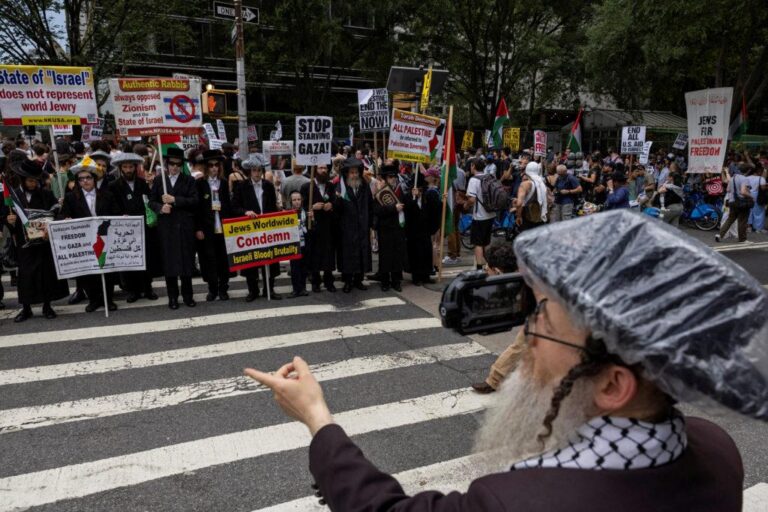Evolving Perspectives: American Jews and IsraelŌĆÖs Gaza Strategy
Recent data from a Washington Post survey reveals a notable transformation in the viewpoints held by American Jews regarding IsraelŌĆÖs military operations in Gaza. A growing segment of this community voices significant apprehension and criticism, challenging the traditional narrative of steadfast support for Israeli government actions. This emerging divergence reflects the nuanced and changing nature of the American Jewish relationship with Israel amid the ongoing conflict.
Critical Voices Within the American Jewish Community on Gaza Operations
The Washington Post poll highlights an increasing split among American Jews about IsraelŌĆÖs tactics in Gaza. Many respondents express concern over what they perceive as disproportionate military measures that endanger civilian populations. There is a growing call for strategies that balance IsraelŌĆÖs security needs with humanitarian priorities, signaling a shift toward more critical engagement with Israeli policies than previously observed.
Primary issues raised include:
- The humanitarian consequences of military actions in densely inhabited areas
- Potential long-term effects on regional peace and stability
- Questions about the efficacy of current tactics in deterring future violence
- The influence of U.S. support on IsraelŌĆÖs policy decisions
These concerns illustrate the complex interplay between cultural affinity and political accountability within the U.S. Jewish population.
Humanitarian Concerns Drive Changing Opinions Among U.S. Jews
The survey reveals that a substantial portion of American Jews are increasingly troubled by the humanitarian fallout of IsraelŌĆÖs military campaign in Gaza. Many emphasize the urgent need to mitigate civilian suffering, advocating for military measures that are tempered by humanitarian considerations. This marks a significant evolution in community sentiment, with empathy for human rights becoming a central factor in shaping opinions.
Key elements influencing these perspectives include:
- The rising number of civilian casualties and displacement in Gaza
- Frustration over stalled political progress toward peace
- Demands for greater restraint and accountability in military operations
- Calls for U.S. foreign policy to prioritize diplomatic engagement over conflict escalation
These trends reflect a desire for advocacy that harmonizes humanitarian values with traditional support for Israel, underscoring a more multifaceted relationship.
| Concern Area | Percentage of Concerned Respondents |
|---|---|
| Humanitarian Impact | 68% |
| Backing Military Action | 39% |
| Preference for Diplomatic Solutions | 73% |
Internal Divisions Among American Jewish Groups Over Gaza Conflict
The intensifying Gaza conflict has exposed pronounced fractures within American Jewish organizations, revealing contrasting attitudes toward IsraelŌĆÖs military response. While past consensus largely favored unequivocal support, current debates highlight ethical dilemmas and political disagreements, reflecting a community wrestling with the balance between security imperatives and humanitarian concerns.
Factors contributing to these divisions include:
- Critique of Israeli Tactics: Some influential Jewish organizations have openly criticized the scale and humanitarian impact of IsraelŌĆÖs military actions, advocating for diplomatic solutions and restraint.
- Defense of IsraelŌĆÖs Security: Other groups maintain strong support for IsraelŌĆÖs right to self-defense against rocket attacks and terrorism, emphasizing the necessity of robust military measures.
- Community Cohesion Challenges: These opposing viewpoints have sparked intense discussions within communal institutions, complicating efforts to maintain unity.
| Organization | Position | Core Message |
|---|---|---|
| J Street | Critical | Advocates for ceasefire and diplomatic engagement |
| American Israel Public Affairs Committee (AIPAC) | Supportive | Stresses IsraelŌĆÖs right to defend itself |
| Jewish Federations of North America | Mixed | Seeks to balance humanitarian aid with community dialogue |
Reconsidering U.S. Policy and Diplomatic Approaches Toward Israel
In light of the ongoing Gaza crisis, a growing number of American Jews are advocating for a reassessment of U.S. foreign policy toward Israel. This shift calls for a framework that emphasizes human rights and sustainable peace over unconditional backing. The community increasingly urges policymakers to adopt measures that promote accountability and diplomatic solutions.
- Demand for greater transparency and responsibility regarding Israeli military actions in Gaza
- Enhanced diplomatic efforts to facilitate ceasefires and ensure humanitarian aid access
- Conditional military assistance tied to adherence to international humanitarian law
- Inclusion of Palestinian narratives in U.S. foreign policy discussions to foster balanced understanding
These calls reflect a broader aspiration within the American Jewish community to influence a more equitable and principled U.S. stance, aligning with democratic ideals and global norms. The debate is intensifying across advocacy groups, religious institutions, and political arenas, marking a pivotal moment in the discourse surrounding AmericaŌĆÖs involvement in this protracted conflict.
| Focus Area | Community Demands |
|---|---|
| Military Aid | Linking assistance to human rights compliance |
| Diplomatic Initiatives | Support for multilateral peace efforts |
| Humanitarian Relief | Ensuring unobstructed aid delivery to Gaza |
| Community Dialogue | Fostering inclusive conversations embracing diverse perspectives |
Concluding Reflections on American Jewish Opinions and Future Implications
As the Gaza conflict persists, the Washington Post poll underscores a significant transformation in the attitudes of American Jews, revealing heightened scrutiny of IsraelŌĆÖs policies. This evolving viewpoint highlights the intricate and multifaceted nature of the communityŌĆÖs connection to Israel and suggests potential shifts in U.S.-Israel relations and domestic political conversations. Observers and decision-makers will be closely monitoring these developments as they continue to unfold in the coming months.







